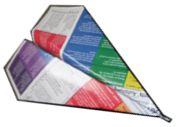In Australia, many universities have recently included major research components or capstones in coursework Masters programs. For many disciplines, this is a very different approach compared to previous Masters coursework structures, and not always a welcome one because they are imposed by the Australian Qualifications framework (AQF) at Level 9. This level specifies that masters programs enable students to ‘plan and execute a substantial research based project, capstone experience and/or piece of scholarship’.
A ‘substantial research’ component would be more advantageous if students are prepared by masters courses in the semesters that build up to the project, capstone or scholarship. This webinar series will consider how regular (content-rich) courses may be informed by the Research Skill Development (www.rsd.edu.au) framework, so that students may develop research mindedness that complements technical research skills enabled by research methods courses.
Together research mindedness and technical research competency combine to enable students to develop the skills associated with research in the discipline, or interdisciplinary context, in ways that fit into the existing learning and assessment regime, whether face-to-face, online or blended modes, intensive or semesterised.
Friday 21 November: Assessing Research components of coursework Masters
The powerpoint may be downloaded here: Assessing coursework masters research
Friday 31 October: Research mindedness vs technical research skills: https://fop-connect.adelaide.edu.au/p5plcbongqi/
Friday 24 October: Introducing Masters students to the six facets of the RSD. https://fop-connect.adelaide.edu.au/p1sv91iu8hi/ Only second half!

